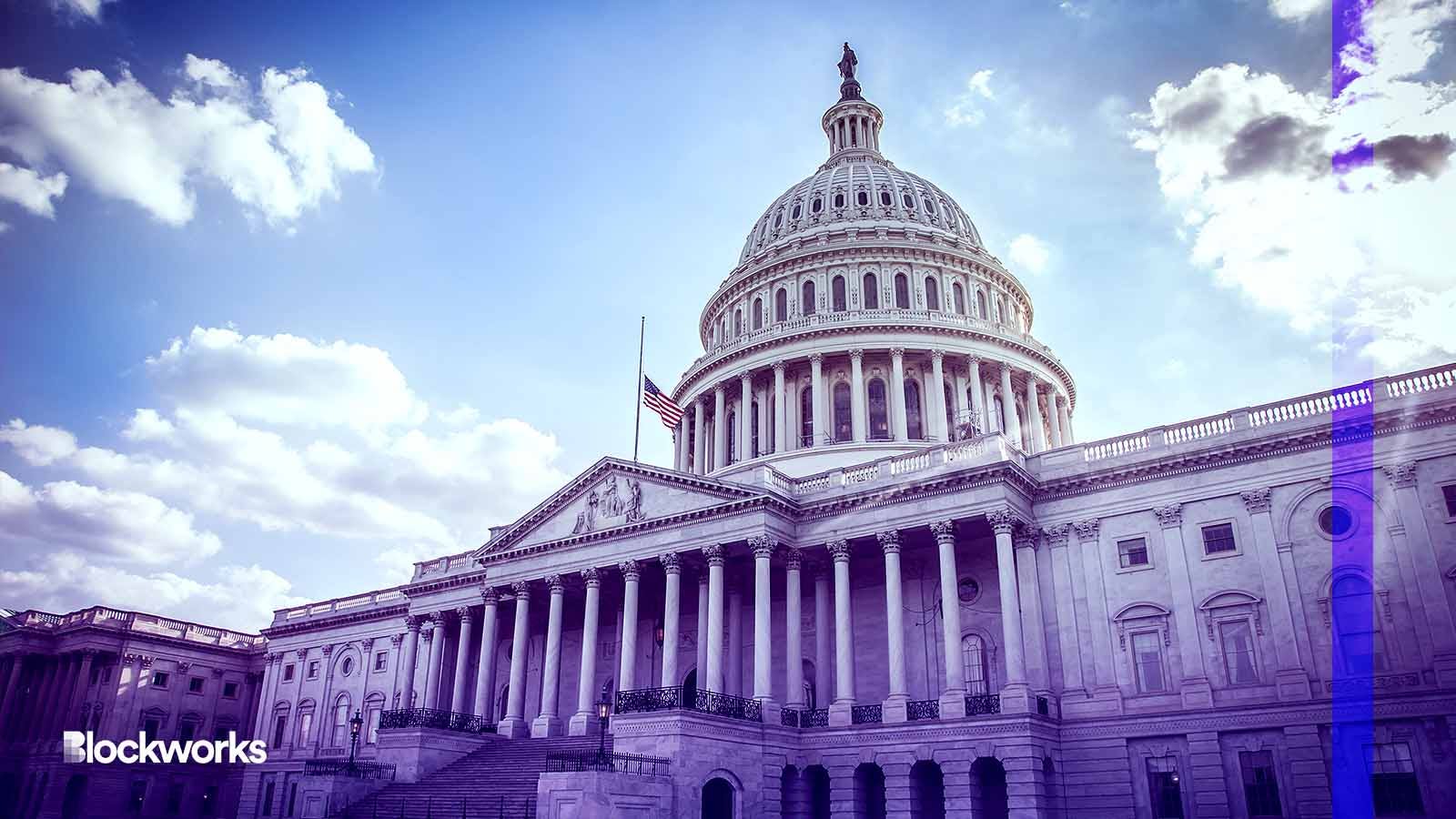Is This Crypto’s ‘Dodd-Frank Moment’? — Circle Exec Weighs In
2023 could be a “breakthrough year” for crypto legislation amid a global “digital currency space race,” Circle’s head of policy says

Colin Dewar/Shutterstock modified by Blockworks
The head of policy for stablecoin issuer Circle said he expects 2023 to be “a breakthrough year” for crypto legislation just days after lawmakers convened last week to discuss such efforts.
Dante Disparte, the company’s policy lead and chief strategy officer, noted in a webinar Monday that the US has historically regulated through crises.
Events of 2022, such as the collapse of Terra’s algorithmic stablecoin and the demise of crypto exchange FTX, have urged lawmakers to act on, rather than study, the crypto sector, he added.
“It took the dot-com bubble to turn over the internet to more durable, steady hands,” Disparte said.
Perhaps, the Circle executive added, this is crypto’s “Dodd-Frank moment” — alluding to the Dodd-Frank Wall Street Reform and Consumer Protection Act, which was enacted in 2010 and sought to bolster government oversight of the US financial system.
“You needed the 2008 Financial Crisis to get comprehensive regulation of banking,” Disparte said. “People may not have liked the outcomes, but nonetheless, there is no pathway to serving…billions of people in this industry on the edges of being well-regulated.”
Circle launched USD Coin (USDC), a stablecoin pegged to the US dollar, in 2018.
USDC is currently regulated under state money transmission laws as electronic stored value. It is backed 100% by cash and short-dated US Treasurys, according to the company, and has a market capitalization of nearly $31 billion.
Disparte’s comments come after the House Subcommittee on Digital Assets gathered to discuss stablecoin regulation last week. A draft bill related to stablecoins was introduced earlier this month by Reps. Maxine Waters, D-Calif., and Patrick McHenry, R-N.C.
Gensler said during a hearing, also held last week, that he supports draft legislation on stablecoins, “with the guardrails of not undermining the $100 trillion dollar capital markets.”
These US efforts arrive in the midst of what Disparte called a “digital currency space race.”
The EU Parliament passed the Markets in Crypto Assets (MiCA) regulation last week with overwhelming support. Industry participants claim the framework will offer clarity in certain areas of the sector and could help crypto companies get more access to banking services.
Disparte feels that there is a “pretty clear consensus approach” around the world, and that in the next five years or so, blockchain-based financial services that support daily payments activity, like stablecoins, will live under central bank oversight.
In recent months, US senators of both parties have labeled crypto legislation as a near-term focus.
Chris Perkins, president of Web3 investment firm CoinFund and a member of the CFTC Global Markets Advisory Committee, told Blockworks last week that crypto legislation around stablecoins in the US could come first. He noted that such digital assets “can further solidify the US dollar as the global reserve currency.”
“Greater federal regulatory clarity allows us to be a net exporter of this innovation around the world, creating a floor and harmonizing those standards,” Disparte said. “We think this pathway to legislation in the United States is pretty much upon us.”
Get the news in your inbox. Explore Blockworks newsletters:
- The Breakdown: Decoding crypto and the markets. Daily.
- 0xResearch: Alpha in your inbox. Think like an analyst.






